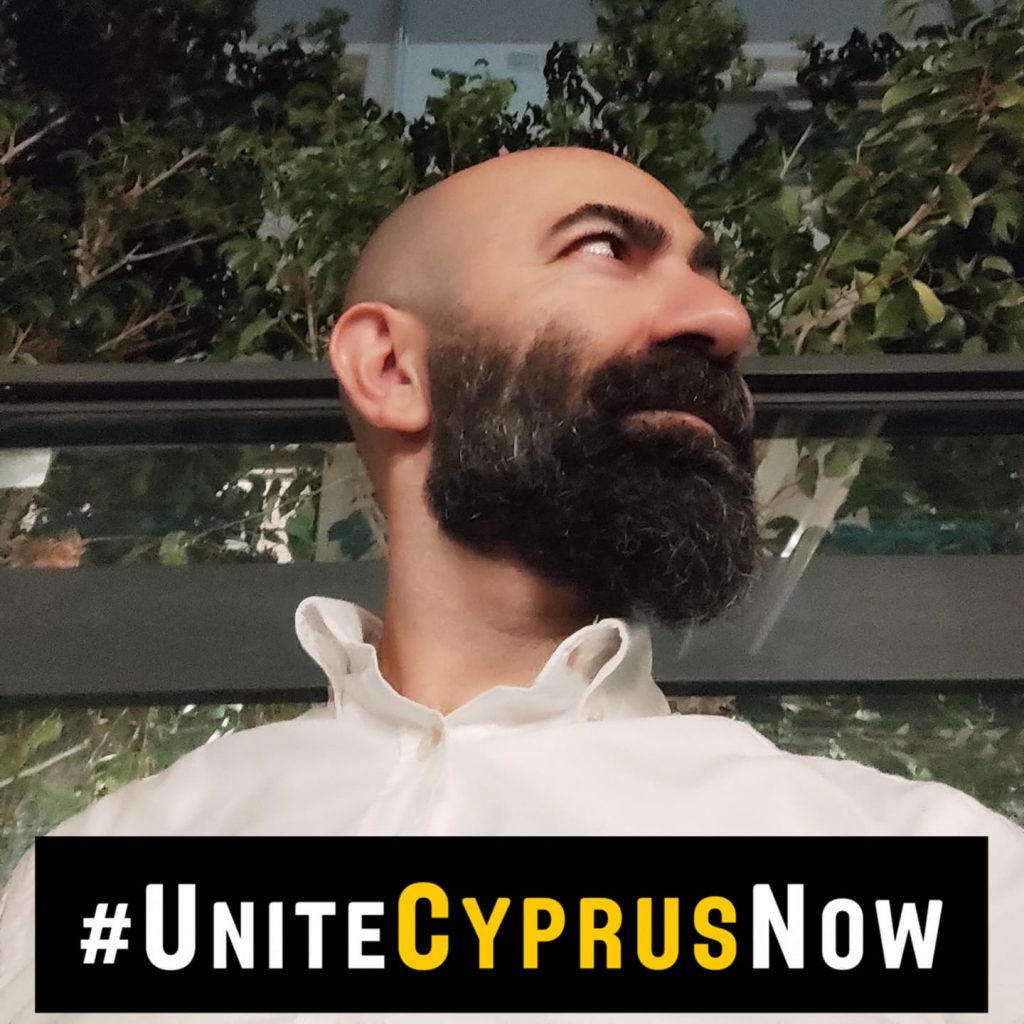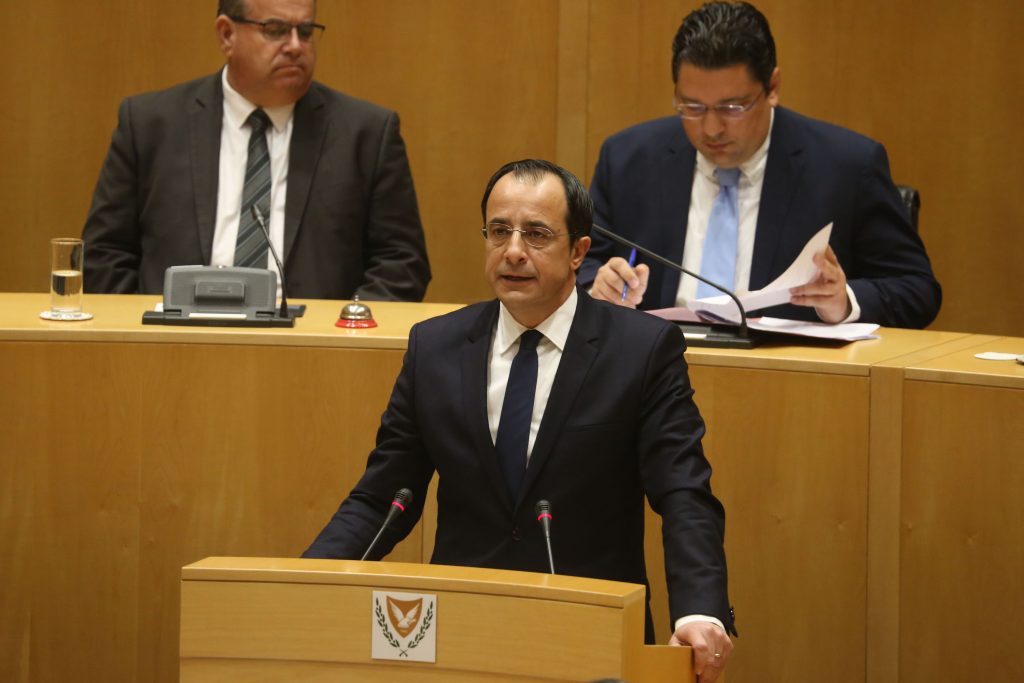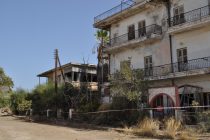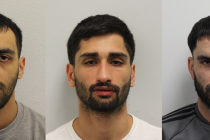A leading pro-unification activist in Cyprus has urged the newly elected Greek Cypriot leader, Nikos Christodoulides, to take “unilateral confidence building steps” to help with the resumption of talks to solve the long-running “Cyprus problem”.
Kemal Baykallı, a co-founder of civil society group Unite Cyprus Now, made his comments to Greek Cypriot daily Dialogos, which he also shared on his Facebook page on Tuesday, 28 February – the day Nikos Christodoulides was sworn in as the new President of the Republic of Cyprus (RoC).
During his inauguration, Christodoulides, 49, stated that finding a solution to the decades old Cyprus dispute will be his top priority.
Of Turkish Cypriot origin, Baykallı said that “hopes for the resumption of result-oriented talks are very low”, given that Christodoules had aired “even more conservative ideas” during his election campaign that would make rapprochement with the Turkish side more difficult.
Baykallı noted that the new Greek Cypriot president had played a “key” role in getting his predecessor, Nicos Anastasiades, to walk away from the last major reunification talks in Crans Montana, Switzerland, back in 2017. Since then, the two sides have moved further apart with the current Turkish Cypriot leader, Ersin Tatar, elected as head of the Turkish Republic of North Cyprus (TRNC) on a two-state mandate in 2020.
“The general tendency among the Turkish Cypriots is that the Crans Montana was another missed opportunity mainly due to the unwillingness of Mr. Anastasiades to engage and take that extra step for a solution. Mr. Nicos Christodoules was the key member of that position,” wrote Baykallı.
The added difficulty for Christodoules is that his election success only came about with the support of Greek Cypriot “reactionary forces that are against a federal solution”. This coalition of hardline nationalists, which included EDEK, DIKO and far-right ELAM, want to turn Cyprus into an Hellenic island, with minority rights for Turkish Cypriots.
However, Baykallı believes this could also present an opportunity for the Greek Cypriot leader, who “might encounter less resistance if he decides to take some unilateral confidence building steps.”

The Turkish Cypriot peace activist suggested three areas of action for Mr Christodoules if he wanted to demonstrate that he was the “President of the Republic of Cyprus and not just the leader of the Greek Cypriot community”.
One positive measure would be to set up an office “to help the Turkish-speaking citizens carrying out their paperwork in various departments of the RoC.”
Although Turkish is an official language of the Republic of Cyprus, it has been dropped by most government departments, who solely communicate in Greek, making it harder for Turkish Cypriots to take up their rights in South Cyprus.
Another important step Baykallı suggests is for Christodoules to “annul the Council of Ministers decision” which banned the issuing of “ID cards to those Turkish Cypriots whose only one of their parents is a RoC citizen.”
This highly contentious policy has been challenged legally, a point which Baykallı also refers to: “Children of RoC citizens, regardless of who they chose to marry, are entitled to have their citizenship and there is already a legal ground for this.”
Baykallı also urged action from the Greek Cypriot leader “to ease the crossings”, which “is the only way to connect Cypriots on both parts of the divide.”
There are currently nine checkpoint crossings dotted along the Green Line, but there are long queues for many of them, reflecting the growing movement of people and goods between the two sides. Unite Cyprus Now and others have regularly called for action to be taken to ease the pressure on these existing checkpoints.
Another area of opportunity could come in the wake of the devasting earthquake in Turkiye. Baykallı suggested that “Mr.Christodoulides can take steps in the EU to help”. He also highlights the upcoming elections in Turkiye later this year, the outcome of which “might open a new chapter when it comes to the Cyprus problem.”
The Cyprus problem historically
Located in the eastern Mediterranean, Cyprus is a former British colony which became independent in 1960. The constitution established a power-sharing federal state between its two big communities, the Greek and Turkish Cypriots, but this state of affairs only lasted for three years.
In December 1963, the larger Greek Cypriot community violently seized control of the government. The island has been politically divided ever since, with the Turkish military imposing an ethnic divide, a Turkish north and a Greek south, following the 1974 war in Cyprus.
A blueprint for a new federal settlement was established in the late 1970s with the help of the United Nations, which has been stationed on the island since March 1964. Signed by both communities and endorsed by the UN Security Council, the High Level Agreements of 1977 and 1979 envisage a new Cypriot state comprising of a bi-communal, bi-zonal federation. Yet despite more than four decades of talks, an agreement has not been forthcoming.
In 2004, a simultaneous referendum was held in Cyprus on the internationally backed Annan Plan to unite the island, which was rejected by three-quarters of Greek Cypriots, though approved by most Turkish Cypriots.
Breaking its own rules, the European Union admitted a divided Cyprus into its midst the same year, with North Cyprus frozen out of the bloc at the insistence of Greek Cypriots, who remain the only internationally recognised government in Cyprus.
The Turkish Republic of North Cyprus was declared in 1983 in response to the unwillingness of Greek Cypriots to share power. To date, only Turkiye formally recognises the Turkish Cypriot state.
Nikos Christodoulides was elected as the Greek Cypriot president following elections in South Cyprus. He beat his former presidential colleague Andreas Mavroyiannis in the run-off on 12 February, taking 51.97% of the vote to Mavroyiannis’ 48.03%, with an electoral turnout of 72.45%.
Christodoulides’ Greek nationalist support base was on show throughout his election campaign. His events would regularly display as many flags of Greece as those of the Republic of Cyprus.
Main image, top, of Nikos Christodoulides (front) speaking during his swearing-in ceremony as President of the Republic of Cyprus at the Greek Cypriot Parliament in Nicosia, Cyprus, on Feb. 28, 2023. Photo © Xinhua/Shutterstock (13786760a)




